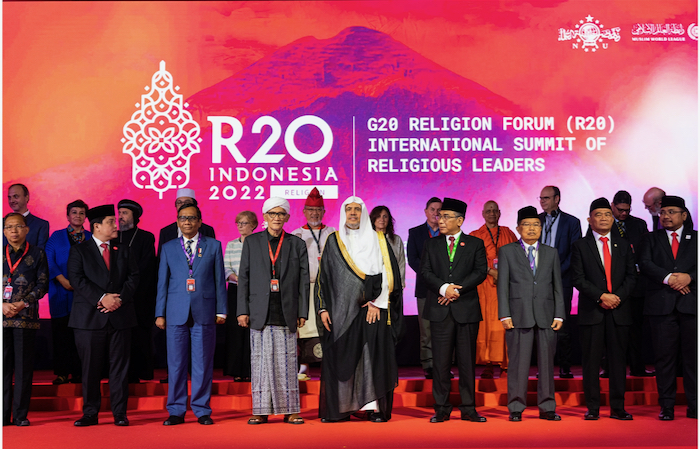For a full picture of our world, don’t miss one of the largest and most influential civil society groups

In 2018, a major international summit on the role of civil society was held in Canada. It brought together representatives from all G7 member states and the European Union.
The purpose was to discuss ways to create a fairer and more sustainable world.
At the summit, a wide array of civil society groups were recognized for ways they can help reach that goal—labour unions, NGOs, community groups, charitable organizations, professional associations, etc.
One important group that was not mentioned was the faith community.
Not one speaker, presenter or panelist was from a faith group, and the subject of religion didn’t come up once.
In a conversation after the summit, an organizer told me the idea of including faith leaders never came up in the planning. In retrospect, he acknowledged this was an oversight.
I agree. By not including anyone from the faith community, or discussing the role religion plays in civil society, the summit missed hearing from one of the largest and most influential civil society groups in Canada.
We normally don’t think of religion as a civil society group. But it is. It brings people together for a common purpose beyond worship services. They meet to volunteer, raise funds for community needs, and campaign for causes they believe.
Not only that, on any given weekend, as many as four million Canadians from different faith groups participate in worship services—more than for any other activity.
At those services they hear about, pray for and raise funds for their communities, for people across Canada and around the world.
But so what? Canada is a very secular country, after all. Attendance at and affiliation with religious groups is dropping. Why should it be included in a discussion about the role of civil society?
I can think of at least four reasons.
- Organized religion is one of the major gateways to participation in civil society. Whether its learning about and praying for local, national or world needs, volunteering, learning leadership skills, or campaigning for issues people care about, faith community members find doorways to involvement in civil society.
- The charitable sector depends on religious people—people who give the most and give the most often. Religiosity is one of the main drivers of charitable giving and volunteering in Canada. As I tell friends who tell me they don’t care if all the places of worship close:
You’ll miss us when we are gone.
- Religion plays a key role in international development. We saw that in Afghanistan, where was an impediment to girls getting an education.In other places, if the local religious leaders don’t support a project, it won’t happen.
- Religion is a key economic force in Canada. It’s called the Halo effect, which estimates that faith groups provide over $18 billion of social, spiritual and communal benefits and service to Canadian towns and cities every year.
One example of how faith groups can be utilized to address a major issue is the Alliance of Religion and Conservation in the United Kingdom.
According to the Salt Lake Tribune, The Alliance dates back to 1985, when Prince Philip asked environmentalist, theologian and interfaith leader Martin Palmer what faith groups could do to address climate change.
The Prince was frustrated by the lack of progress on the issue. He told Palmer If the future of the planet has to do with data and information, we’d have changed it by now. We’d be saving the planet. We’re not because we’re not actually touching hearts or minds at all.
So the Prince asked Palmer to bring together leaders of five of the world’s major faiths (Buddhism, Christianity, Hinduism, Judaism and Islam) and the leading international environmental organizations in that country.
The result was the Alliance which, until it closed in 2019, was, according to Palmer, the largest conservation effort in the world.
I wonder what would happen if the Federal government, or provincial governments, brought faith groups to the table in Canada so they could help address pressing issues facing this country today? Things like homelessness, poverty, hunger, mental health and addictions and, yes, climate change.
There are no quick fixes to any of those challenges, but maybe it’s worth a try.
IARJ member John Longhurst is a faith reporter and columnist at the Winnipeg Free Press in Canada
